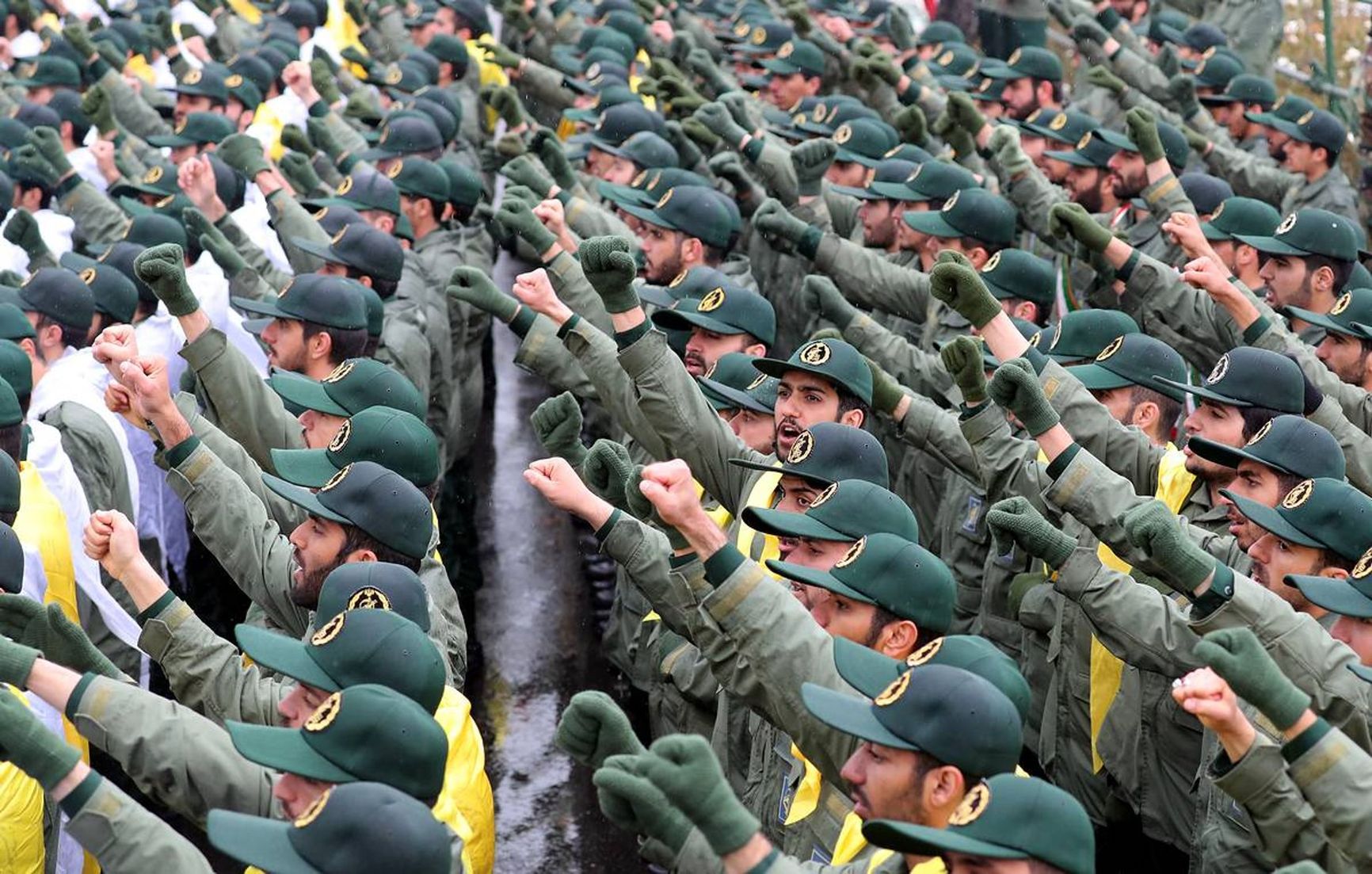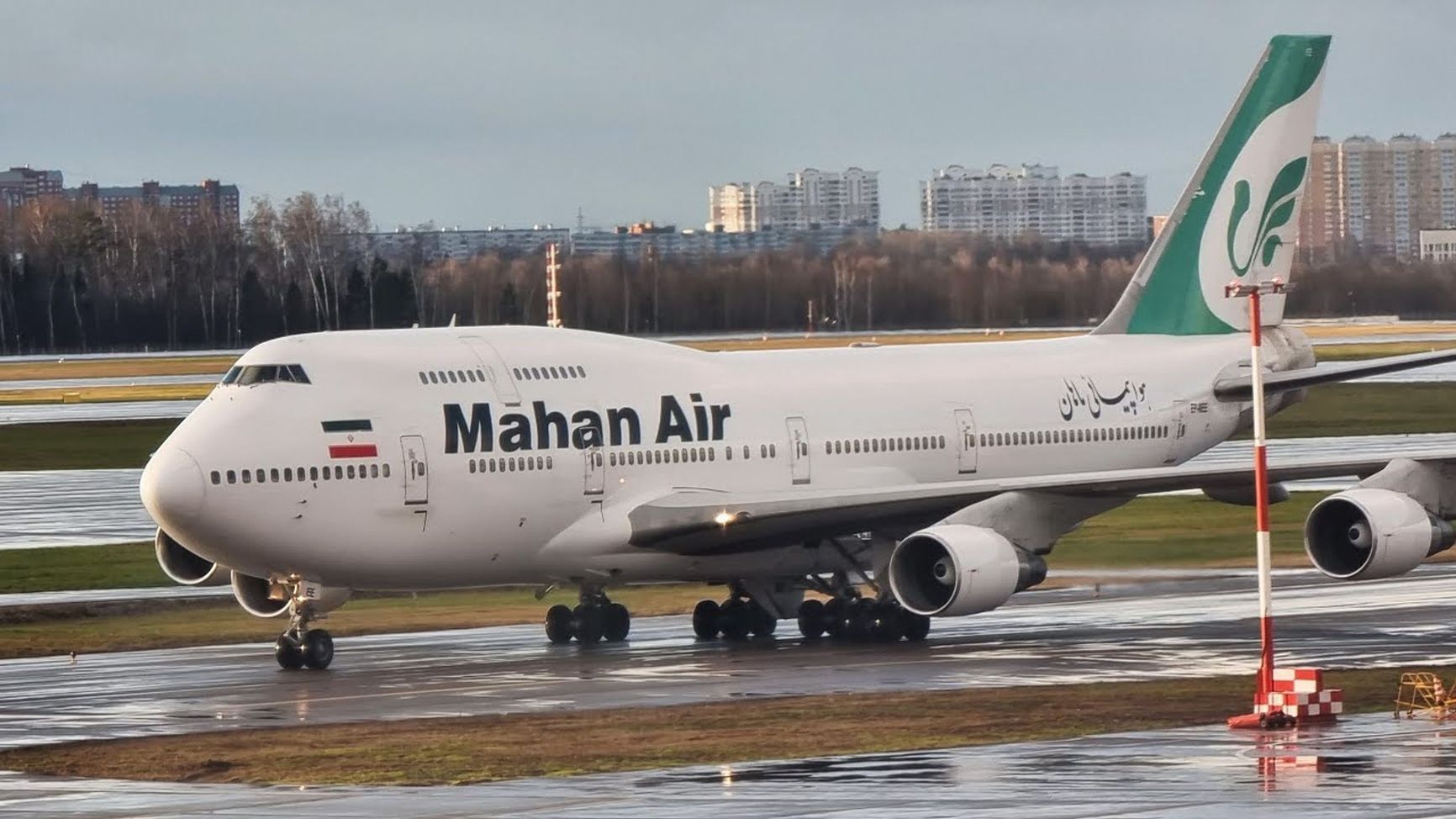

The Islamic Republic of Iran annually allocates hundreds of millions of dollars to support extremist movements in the Middle East. Despite facing the harshest sanctions, the regime in Tehran spares no expense. The funds, eventually finding their way to Hezbollah or Hamas, are generated through the sale of oil and black caviar. Tehran also taps into government-controlled “money-laundering” entities, imposes escalating taxes on its own citizens, and even receives support from Russia in exchange for assistance in killing Ukrainians.
Content
Money in short supply
Bypassing sanctions
Drones for cash
The Guards of the Islamic Revolution, Quds Force, and their entities
Confiscating assets
“We have never hidden the fact that the entire budget of Hezbollah, all our income and expenses, everything we eat and drink, all weapons and rockets – come from the Islamic Republic of Iran,” said Sheikh Hassan Nasrallah, the head of Lebanese Hezbollah, back in 2016.
Determining the exact amount Hezbollah receives from Tehran is difficult. All these funds operate in the shadows, forcing analysts to rely on indirect data, leaks, and even speculation. The most frequently cited figure is around $700 million per year. Additionally, approximately $100 million goes to Palestinian groups such as Hamas, Islamic Jihad, and others. There are also Yemeni Houthis, several Shiite armed groups in Iraq, and numerous other recipients of Iranian military aid scattered across the Middle East. In other words, around a billion dollars annually is spent on supporting this network. Perhaps even more. It's quite a substantial amount for Iran, considering that in 2022 the real (as opposed to one calculated at the official exchange rate of the Iranian central bank) military budget of the Islamic Republic, when converted to dollars, did not exceed $7 billion.
Money in short supply
Iran has long faced serious budgetary challenges, despite its oil reserves and the continuously growing export of exotic products such as black caviar and beluga meat. The country's economy has been severely affected by Western sanctions. Tehran is unable to attract Western investments into its oil and gas sector, develop its trade fleet, and even fortify its banking system due to these sanctions. As a result of measures partially lifted by Barack Obama but fully reinstated by Donald Trump in 2018, the Iranian rial constantly depreciates against the dollar.
Consequently, the budget, in real figures, becomes less impressive with each passing year. Before Trump reinstated sanctions, the Islamic Republic's defense budget alone exceeded $21 billion. Iran can only dream of such figures now. Even the current, significantly reduced, military budget forces the government to take extremely unpopular measures, such as raising taxes on automobiles and real estate, and abandoning salary indexation for employees of state-owned or state-connected companies. There is little hope for an improvement in the near future.
The U.S. has designated Iran as a state sponsor of terrorism, effectively excluding Tehran from the legal economic field. Officially, Iran can only buy and sell goods under the conditions permitted by the West. Logic suggests that in a situation of perpetual economic crisis, with record inflation and constant protests from Iranians weary of poverty, the government should reconsider its relations with the outside world and its expenditures. However, this is not the approach of the ruling ayatollah regime. Their priority is the global Islamic revolution, and thus, bearded figures from Hamas, whom Tehran sees as one of the main instruments of this revolution, will continue to receive their millions even as ordinary Iranians collapse from hunger.
Officially, Iran can only buy and sell goods under the conditions permitted by the West
Bypassing sanctions
To fund its proxies, Iran has established a comprehensive system of relatively legal, semi-legal, and outright illegal structures that, regardless of the state of the government budget, continue to generate and transfer funds to allies of its proxy regime. Some of these structures have existed for decades, while others have emerged more recently.
Among the latter are fictitious companies engaged in the sale of sanctioned Iranian products, which are being established in great numbers in the United Arab Emirates (UAE). The liberal economic legislation of the UAE allows Iran to use proxies for registering these companies, selling sanctioned goods (such as chemicals) under the guise of legal products allegedly manufactured not in Iran but in other countries, thus making a profit. Essentially, these are “money-laundering” entities facilitating the legalization of illicit funds for the ayatollahs.
In just a few months of 2022–2023, Americans traced the influx of at least $160 million into the accounts of these companies (not all of them are connected to Iran; some also operate in the interests of other outcast countries, such as Russia, though the majority of front companies still have beneficiaries in Tehran). Washington strongly disapproves of these activities and increasingly urges the UAE to tighten its laws and shut down all “money-laundering” entities.
By the way, during a brief period of improved relations with the outside world, the government of the Islamic Republic considered enacting laws to combat money laundering. However, all discussions on this matter came to a halt at the Council of Guardians of the Constitution — an assembly of theologians and regime loyalist jurists who review all laws passed by parliament, and none can come into force without their approval. The Guardians simply blocked all attempts to pass such legislation, fearing it would complicate the financing of groups like Hamas, Hezbollah, and similar entities.
Drones for cash
Tens of millions of dollars have flowed into Iranian coffers from the sale of Russia's kamikaze drones, the Shahed, which Russians deploy in attacks on Ukrainian cities, causing destruction to Ukraine's civilian infrastructure. The proceeds from drone sales are hand-delivered from Moscow to Tehran in cash, transported by planes. In just one such flight in August 2022, around 140 million euros were brought from Russia to Iran. These funds contribute, in part, to the financing of international terrorism. Hence, the U.S. government is offering a substantial reward for anyone providing information that could put an end to this illicit trade.
The Guards of the Islamic Revolution, Quds Force, and their entities
It is crucial to note that the Iranian party to this transaction is the Islamic Revolutionary Guard Corps (IRGC) — an elite armed forces unit directly subordinate to the Supreme Ayatollah Khamenei. As implied by the formation's name, the IRGC was established to protect and disseminate the ideals of the Islamic Revolution. It is specifically responsible for establishing contacts with foreign groups.

The Islamic Revolutionary Guard Corps (IRGC)
ABEDIN TAHERKENAREH | EPA-EFE
To facilitate these activities, the so-called Quds Force operates within the Islamic Revolutionary Guard Corps (IRGC). This unit is directly responsible for handling the material and technical cooperation with Iran's foreign clients. The U.S. government has even identified the individuals within the Quds Force who deliver money and weapons to Hezbollah, Hamas, and similar groups. Funds are transported in cash and gold, transferred to accounts held by proxies in Middle Eastern banks, and sent to cryptocurrency wallets. The IRGC employs all available methods to finance its clients.
The funding for the Revolutionary Guard Corps comes from both the defense budget (it gets a significant portion of funds allocated for the military, the exact amount being a state secret), and other sources. Entities engaged in construction, transportation, oil extraction, and various other sectors are either fully or partially owned by the elite unit of the Iranian army.
One such entity, Hatam al-Anbiya, alone employs up to 170,000 personnel and receives billions of dollars from government contracts in construction. The money is used for military purposes but is not reflected in the official defense budget.
Until relatively recently, the Guards also earned income through joint ventures with respected Japanese businessmen. The Guards have a stake in the Iranian company Bahman, which, until 2018, assembled licensed Mazda cars in Iran. The collaboration with Bahman ceased after the Americans threatened to close the U.S. market for Mazda. Hyundai, the South Korean automaker, also left Iran for the same reason, as their cars were assembled in Kerman Khodro factories.
The Japanese ceased their collaboration with Bahman after the Americans threatened to close the U.S. market for Mazda
Formally, Kerman Khodro is not owned by the Revolutionary Guard Corps, or at least no sufficient evidence to this effect has been found. However, 50% of the company is owned by Mavla al-Muvahhidin, a charitable foundation with several Quds Force officers serving on its board of directors. The foundation's general director was Hamid Arabnejad, a former commander of the Guards and a designated terrorist on the U.S. list.
The most valuable asset of this foundation is the airline Mahan Air, which until recently operated flights between Tehran and several European capitals and came under sanctions only in 2018. Mahan Air is entirely owned by the Mavla al-Muvahhidin foundation. The company not only generated funds for foreign terrorists but also played a role in their transportation. It is known that Mahan Air's planes were used to transport equipment and personnel from Iran to Syria.

Mahan Air's Boeing 747-400 flying on the Moscow - Tehran route
Charitable foundations of this nature, simultaneously managing successful businesses and closely tied to the Revolutionary Guard Corps, constitute one of the main pillars of financial prosperity for Hezbollah and similar organizations. Iran hosts dozens of such foundations, with their charters emphasizing assistance to the poor and sick as their primary activity. To ensure this aid, these foundations are allowed to engage in economic and financial activities, own shares in enterprises and companies. They are not subject to financial audits by government authorities and pay minimal taxes.
While these foundations may genuinely assist the poor and sick, they have long become sources of informal and substantial income for the clerical elite and security forces, who typically serve as founders and leaders of such organizations.
Charitable foundations have long become sources of informal and substantial income for the clerical elite and security forces
The Mostazafan foundation alone owns hundreds of enterprises, and its assets were estimated at over $2 billion several years ago. Due to its close ties with the Revolutionary Guard Corps and other security forces, Mostazafan is under U.S. sanctions. The U.S. government points out that the charitable activities of the foundation are merely a cover for financial machinations benefiting the Iranian authorities and that, in general, the foundation does not assist the impoverished Iranians but, on the contrary, deprives those who oppose the regime of their assets.
Confiscating assets
Asset expropriation serves as an additional means of generating revenue, including funds destined for foreign terrorists. Confiscations of agricultural land and businesses often target Baha'is — members of a banned and persecuted religious community in Iran. Baha'is are pacifists, and their spiritual center is currently located in Israel, making them some of the staunchest enemies of the ayatollahs. Violent seizures of land from Baha'is are one of the main methods used by the authorities to suppress followers of the disfavored religion. Iranians can also lose their property for political reasons; it can be confiscated for perceived disloyalty to the government, such as participation in protests. The confiscated properties are usually handed over to the same funds that, on paper, are supposed to help Iranians but, in reality, serve Hezbollah and Hamas.
Property may be confiscated for perceived disloyalty to the government, such as participation in protests
In general, even amid a continually growing budget deficit and forced reductions in military spending, Iran still possesses numerous sources of income. With minimal effort, it can sustain entire proxy armies across the Middle East. These proxy armies are gradually learning to manage the millions sent to them annually from Tehran. As early as 2022, Americans uncovered an entire network of closely connected dummy financial entities operating in the interest of Hamas. The total funds managed by this underground financial empire of Hamas exceeded $500 million.